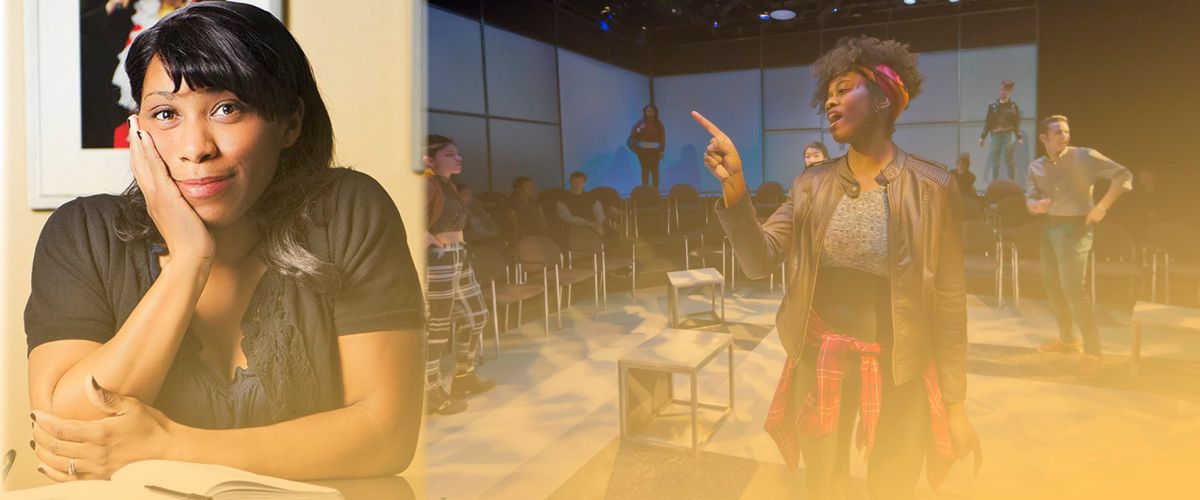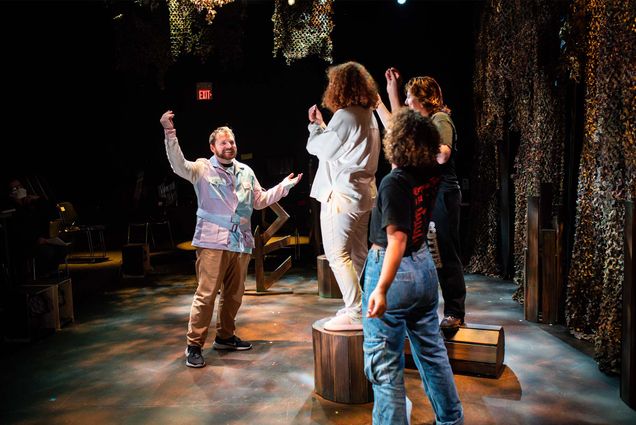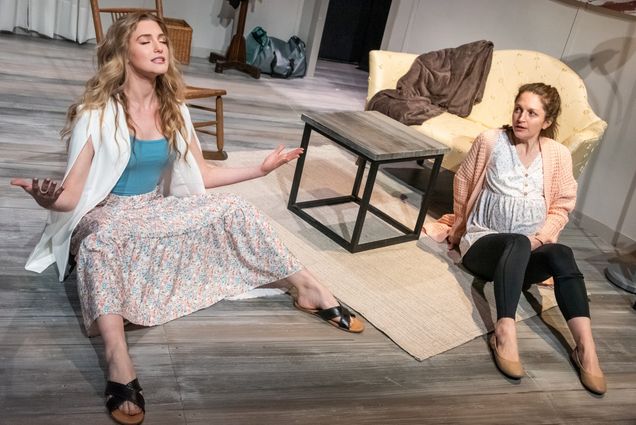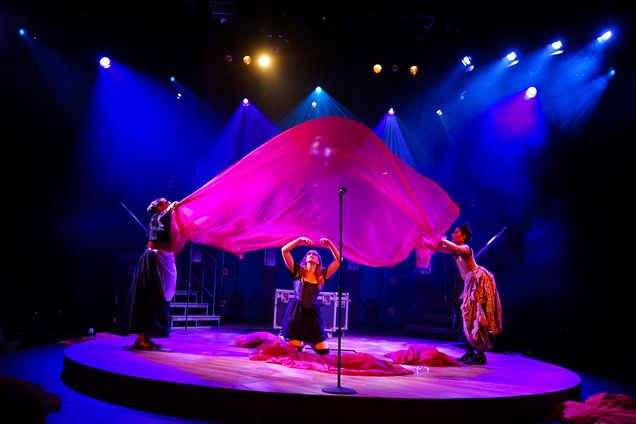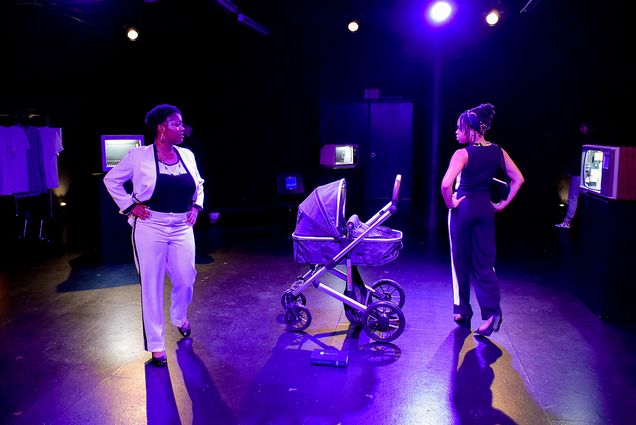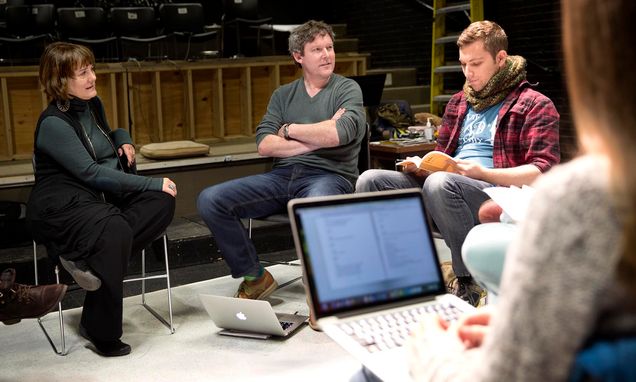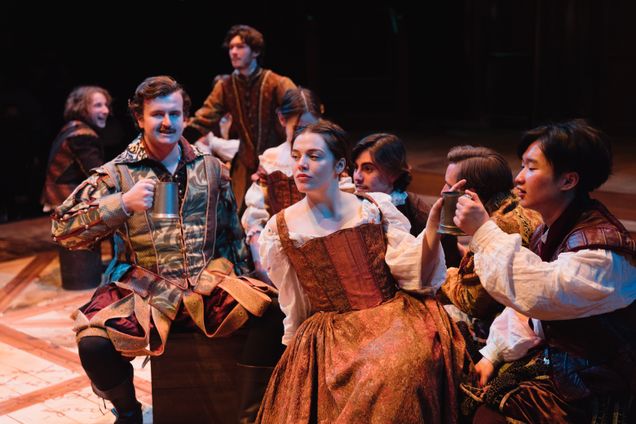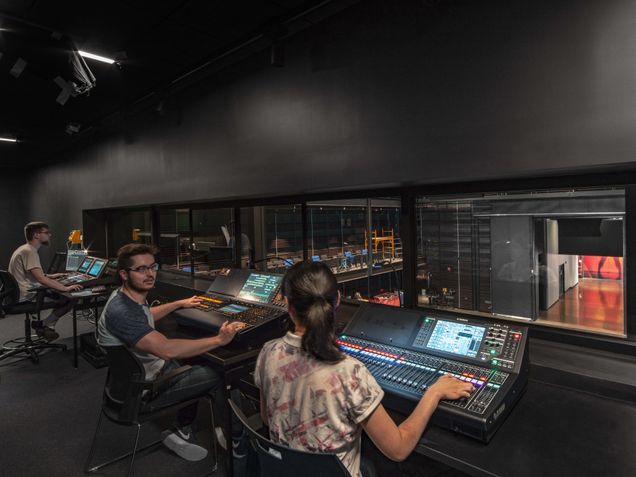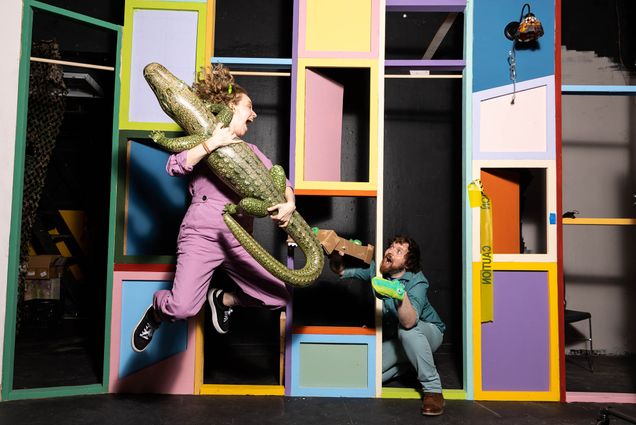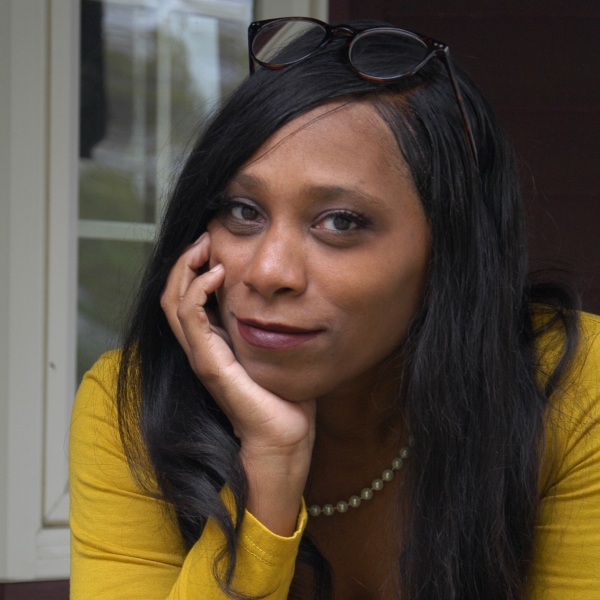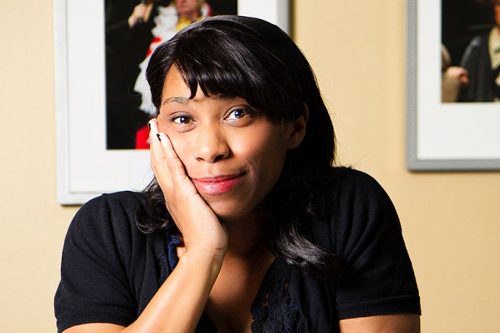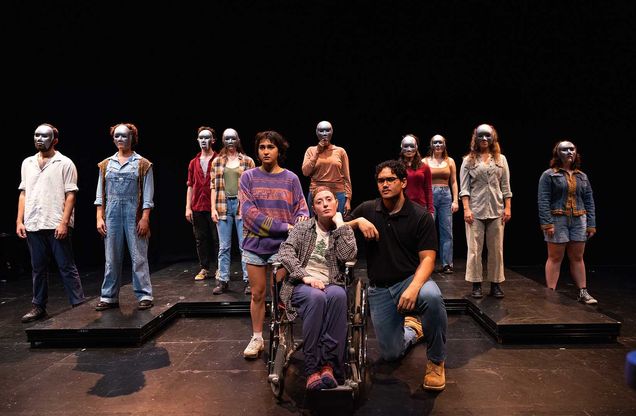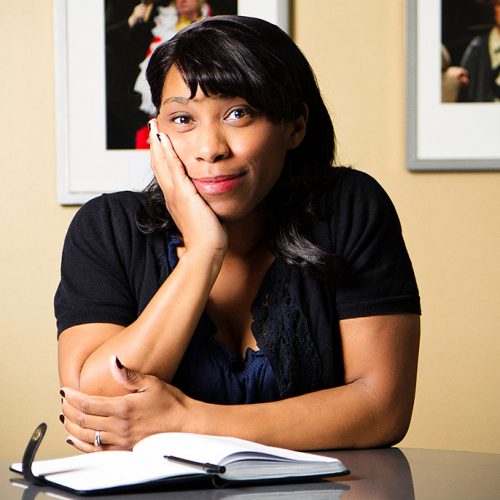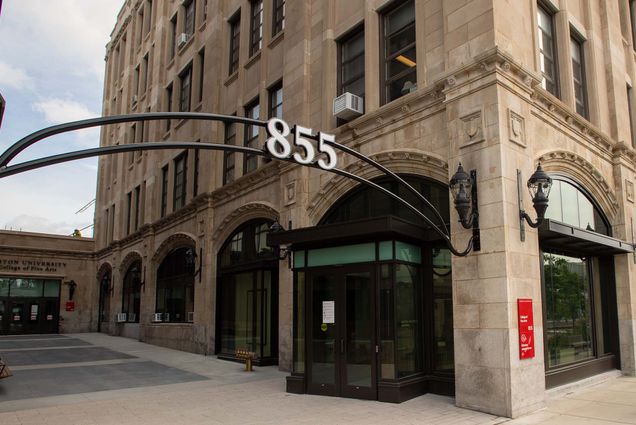Playwriting Focus
Are you an undergraduate student interested in playwriting?
In addition to the MFA playwriting program, BU School of Theatre offers a playwriting focus available to any undergraduate playwright in the BFA Theatre Arts programs. Get to work with Obie-award-winning playwright, Kirsten Greenidge, BU School of Theatre director and associate professor of playwriting and theatre arts. Greenidge, who the Boston Globe calls “one of the city’s leading dramatists,” and has been featured in The New York Times, has written and produced a dozen plays, among them The Luck of the Irish, which was premiered by the Huntington Theatre Company in 2012 and was directed by Melia Bensussen.
The playwriting focus is not a major, minor, or separate track. We see it as an undergraduate trajectory for new plays by undergraduate playwrights.
“I believe that everyone has one play in them. Sometimes more,” says Greenidge. “Even if they don’t see themselves as much of a writer. Everyone has one play.”

Playwriting Courses
Any student in SOT is able to take the playwriting classes offered. Some courses are mandatory for the Theatre Arts major. In this purposely flexible pathway, students can take any playwriting classes in any order including:
- Theatre Ensemble 2: Autobiography (Fall semester only)
- Theatre Ensemble 2: Adaptation (Spring semester only)
- Playwriting 1
- Advanced Playwriting
In these classes, students are tasked with writing short plays, one-acts, and full plays while keeping in mind that writing a play in one single semester is not the most ethical, healthy, or beneficial way to write a play. They are modes for inspiring and highlighting the art and craft of playwriting in anyone.
OPPORTUNITIES
Outside of classwork, students have opportunities to progress their new works. Many plays written or started in classes end up in these processes. The trajectory normally starts with:
- Held at the end of the semester’s Springboard Festival
- Usually cold reads, self-cast, sitting and reading one to 10 pages of a new work
- Held at the end of every semester
- Usually consists of readings that can be staged, book in hand, memorized, fully directed by an assigned MFA Directing student or chosen undergraduate student, etc.
- After two three-hour rehearsals respectively, the four to six Springboard plays each get one presentation in front of an audience with a talkback afterward
- As part of the Fringe Festival in the fall
- Consists of three undergraduate new works chosen by the SOT Season Slate Committee. Each play receives a two-week rehearsal process and two presentations with a talkback after one of them
- Usually staged readings with an assigned and/or chosen production team of a director, dramaturg, actors, and limited sound and lighting design
The talkbacks all follow American dance choreographer and educator Liz Lerman’s Critical Response Process that was created for dance and movement critique. Originally made in four parts, SOT has adopted three of the parts that focus on objectivity as much as possible:
What did you notice?
- For example: I noticed the use of the color blue as a symbol of grounding for the main character
- Allows time for thoughtful reflection before we move straight to critique
- Takes away the notion of “I like.” What we like or don’t like does not mean anything for the nature of the play and its process
What are your questions for the playwright?
- For example: What does the color blue mean for the other characters?
- In service to the play
- Forms critique as a dialogue rather than a punch in the gut
What questions does the playwright have for us?
- For example: Did the need for the color blue feel justified by the world of the play?
- Allows the playwright to get in the audience’s head and heart
- Highlights in the next steps for the play
Students wishing to pursue the focus are required to meet with faculty at the end of their first year to discuss their interests.
FACULTY
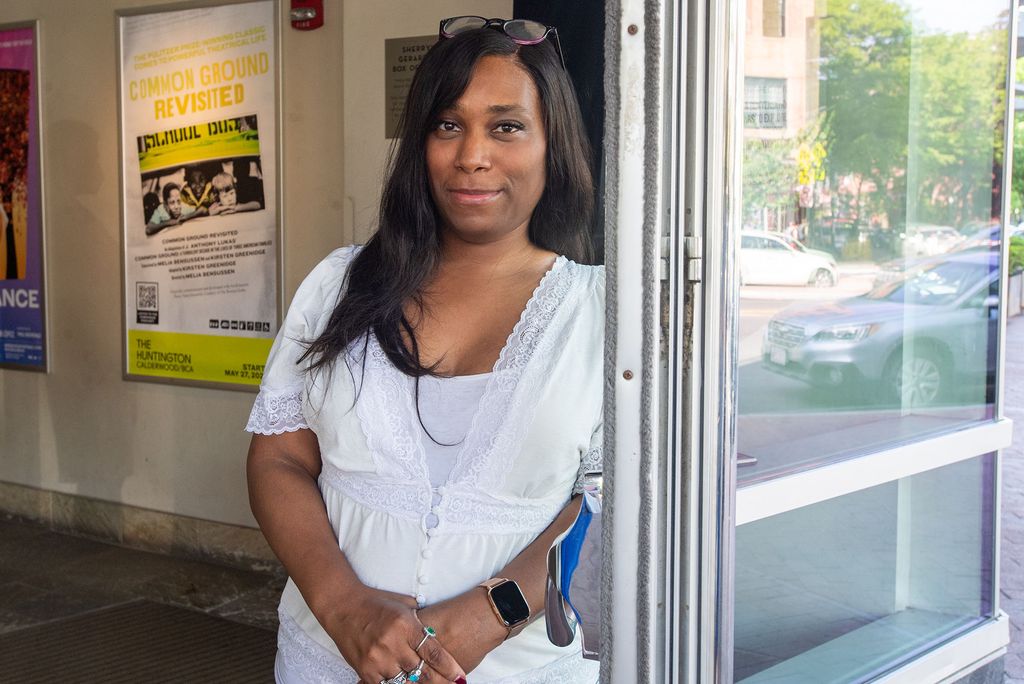
Meet Kirsten Greenidge
It’s not uncommon at BU to have a professor who’s also a working professional in Boston’s many art centers. Obie-award-winning playwright Kirsten Greenidge recently refashioned the acclaimed 1985 book, Common Ground: A Turbulent Decade in the Lives of Three American Families, into a drama for 21st-century audiences (and refueled with present-day racial experiences) at The Huntington Theatre Company.
The playwriting track is multifaceted and growing. If you’ve got things to say, playwriting is open to you. It is a cliché, but I often feel that everyone has a writer within them.
The Playwrights’ Project at BU
CFA student playwrights are writing stories that haven’t been told yet. Jo Cosio-Mercado (CFA’21) wrote “Fabric,” a story focused on the intersection of identity in queer culture. “Fabric” is one of three plays for the Playwrights’ Project, which offers participating BFA playwrights a chance to realize their new plays at various stages of development. The plays receive workshop-style processes that encourage rigorous examination and generation of new text.
Have questions?
Interested in pursuing the playwriting focus? Contact Kirsten Greenidge, BU School of Theatre director and associate professor of playwriting and theatre arts, for more information.
